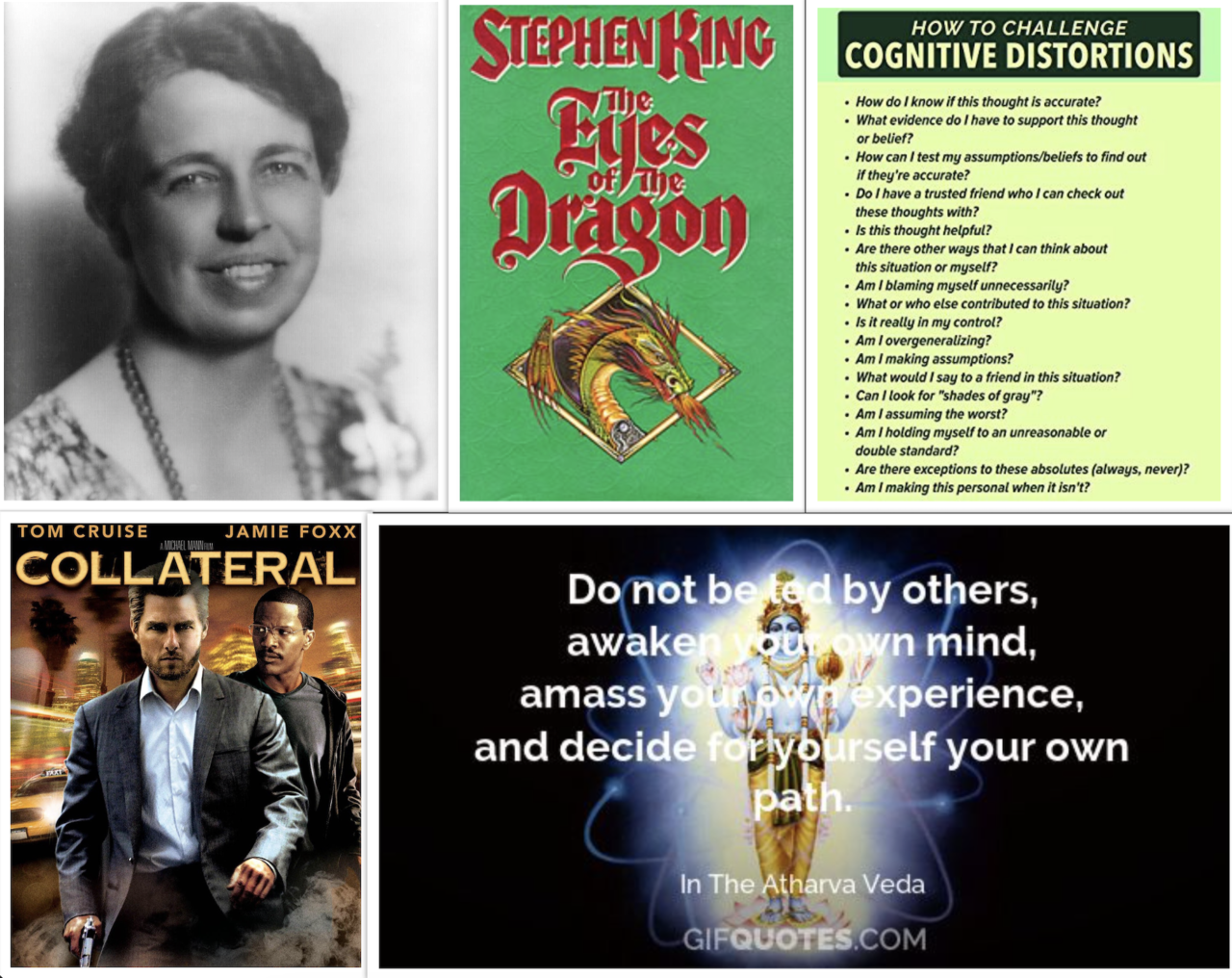Sunday Supplement #43 (March 6th, 2022)
Below is another Sunday Supplement with a quote worth sharing, a book worth reading, a movie worth watching, brainfood worth consuming, and a spiritual passage worth pondering.
I hope you take something away from these recommendations that enriches your week ahead!
Quote of the Week:
“When you’re trying to motivate yourself, appreciate the fact that you’re even thinking about making a change. And as you move forward, allow yourself to be good enough.”
– Alice Domar
Book of the Week:
12 Rules for Life – Jordan B. Peterson
The controversy around Jordan Peterson and his work drew me to reading his book and checking out his lectures.
In Sunday Supplement #38, I featured an interview with Peterson on The Tim Ferriss Show.
The podcast episode is a good entry point to see if Peterson is someone you’d find worth checking out. He is a clinical psychologist, professor at the University of Toronto, and author of three bestselling self-help books.
I don’t agree with some of his viewpoints, but there are many nuggets of wisdom in his work.
12 Rules for Life is on the longer side and is a slow read, but the topics the book covers are worth perusing.
The chapters in the book range from “Treat Yourself Like Someone You Are Responsible For Helping” to “Do Not Bother Children When They Are Skateboarding.”
There are interesting statistics and examples used throughout the book to illustrate each section. You don’t have to agree with everything, but many insights are worth picking up.
Movie of the Week:
It has been a while since I featured a Studio Ghibli film in a Sunday Supplement. I discussed some more well-known movies from their catalog in Supplements #2, #16, and #25.
However, Kiki’s Delivery Service was the breakthrough film for Studio Ghibli in Japan. The film adapted Eiko Kadona’s popular children’s fantasy novel of the same name and became the highest-grossing film in Japan the year of its release.
The story follows a thirteen-year-old witch on her mandatory year of independent life as she attempts to fit into a new community while supporting herself through an air courier service.
Kiki’s Delivery Service isn’t the most fast-paced film, but the YouTube channel The Take brilliantly illustrates how it is a perfect allegory for young creatives trying to make it on their own.
The film’s themes, including work-life balance, are wonderfully explored in a beautiful setting with unique characters.
It is a surprisingly deep movie that is worth checking out if you’re up for a slow but meaningful film night.
Brainfood of the Week:
How to Free Yourself of Negative Thoughts | Oprah Winfrey Network
Oprah Winfrey’s series SuperSoul Sunday is an excellent program that features exclusive interviews with top thinkers, authors, and spiritual leaders.
The program explores themes like happiness, personal fulfillment, wellness, spirituality, and conscious living to provide thought-provoking and inspiring content to help viewers become their best selves.
In this clip, from her full episode with Michael Singer, they discuss choosing your engagement with events around yourself.
Our minds can create much chatter when engaged with external or internal events and emotions. The technique Singer explains is leaning away from reacting and giving yourself the chance to not become attached to negative emotions.
I’ve recommended two of Michael Singer’s books in previous Sunday Supplements, and I highly recommend his work.
One of the best tools I’ve picked up from him is the noticing game. You develop the habit of recognizing when you’re experiencing a negative emotion, so you can become aware of it and get to choose how you want to move forward.
Give this short clip a view and see if you’re interested in checking out some of Singer’s other work.
Closing Spiritual Passage:
“It takes time for a fruit to mature and acquire sweetness and become eatable; time is a prime factor for most good fortunes.”
– Atharva Veda
I love quotes and passages that remind us to be patient with our results and to trust and know that the outcome will come.
This Atharva Veda perfectly captures the process of reaping what you sow. It is also an excellent companion to the quote about not digging up a seed to see if it’s growing.
One of my friends gave me the metaphor of taking a driving trip at night. When you get in the car, you don’t question that you will make it to your destination.
You trust that the tools around you, your phone, the vehicle, your abilities as a driver, and the roads are more than enough for you to arrive safely.
Our lives mirror this metaphor in many ways. We have survived 100% of the challenges we’ve faced so far. We need to trust and know that things will be okay.
The Atharva Veda passage above reminds me that there is plenty of juicy fruit on the road ahead.
Give yourself a moment to recognize all the work you’ve done, and have a blessed week ahead!
2 Comments

